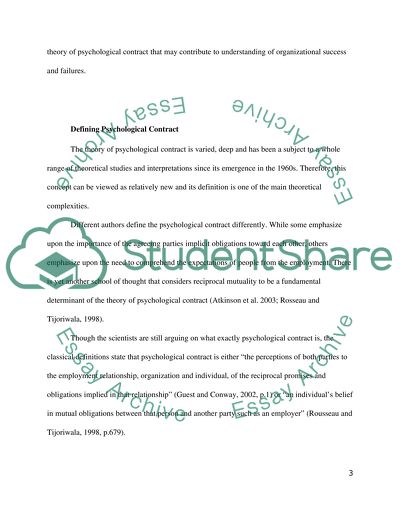Cite this document
(“Critically evaluate the so called theory of the psychological Essay - 1”, n.d.)
Critically evaluate the so called theory of the psychological Essay - 1. Retrieved from https://studentshare.org/miscellaneous/1615775-critically-evaluate-the-so-called-theory-of-the-psychological-contract-does-it-provide-a-valid-reliable-and-predictable-explanation-that-may-contribute-to-an-understanding-of-organisational-success-or-failure
Critically evaluate the so called theory of the psychological Essay - 1. Retrieved from https://studentshare.org/miscellaneous/1615775-critically-evaluate-the-so-called-theory-of-the-psychological-contract-does-it-provide-a-valid-reliable-and-predictable-explanation-that-may-contribute-to-an-understanding-of-organisational-success-or-failure
(Critically Evaluate the so Called Theory of the Psychological Essay - 1)
Critically Evaluate the so Called Theory of the Psychological Essay - 1. https://studentshare.org/miscellaneous/1615775-critically-evaluate-the-so-called-theory-of-the-psychological-contract-does-it-provide-a-valid-reliable-and-predictable-explanation-that-may-contribute-to-an-understanding-of-organisational-success-or-failure.
Critically Evaluate the so Called Theory of the Psychological Essay - 1. https://studentshare.org/miscellaneous/1615775-critically-evaluate-the-so-called-theory-of-the-psychological-contract-does-it-provide-a-valid-reliable-and-predictable-explanation-that-may-contribute-to-an-understanding-of-organisational-success-or-failure.
“Critically Evaluate the so Called Theory of the Psychological Essay - 1”, n.d. https://studentshare.org/miscellaneous/1615775-critically-evaluate-the-so-called-theory-of-the-psychological-contract-does-it-provide-a-valid-reliable-and-predictable-explanation-that-may-contribute-to-an-understanding-of-organisational-success-or-failure.


